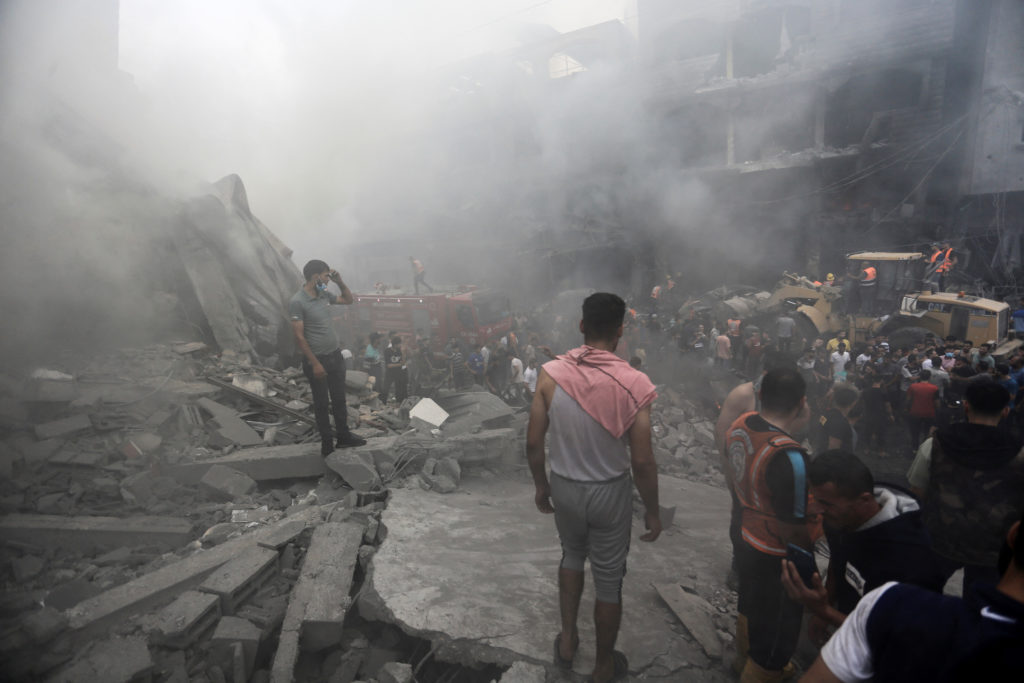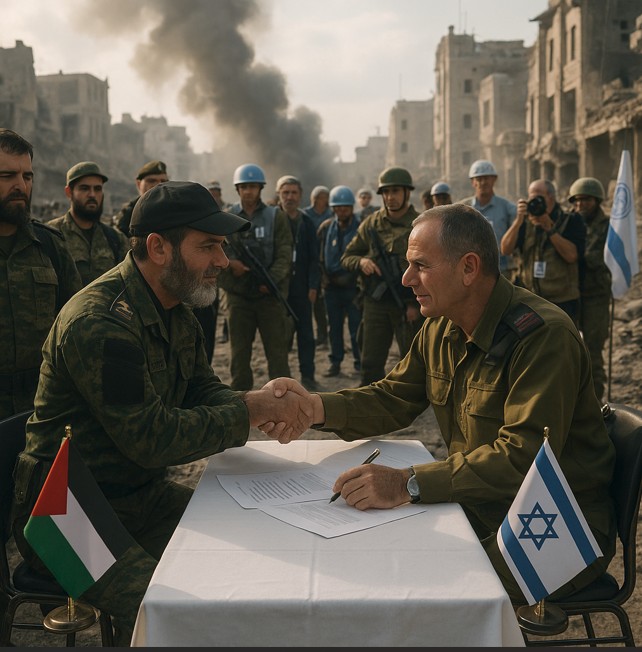CAIRO / JERUSALEM / WASHINGTON – A new chapter in Middle East diplomacy may be unfolding.
By ShockYa Investigations – October 7, 2025

Negotiations between Israel and Hamas have quietly resumed in Cairo, under the watch of Egyptian mediators and with the United States backing a 20-point peace proposal attributed to former President Donald Trump.
The talks — still in the preliminary phase — aim to secure a ceasefire, prisoner exchange, and phased de-escalation after two years of devastating warfare that reshaped the region and cost tens of thousands of lives.
Hamas Considers a Deal, But With Conditions
Officials close to the talks confirm that Hamas has expressed willingness to consider both a ceasefire and the return of remaining hostages, provided that Israel commits to:

- Humanitarian corridors for aid and medical access;
- International monitoring of any truce; and
- Discussions on long-term sovereignty and reconstruction in Gaza.
A senior Egyptian official told ShockYa that “for the first time in two years, both sides are showing signs of fatigue — and realism.”
Israel Holds Its Line
Despite the diplomatic signals, Israeli forces continue their air and ground operations in the Gaza Strip, targeting what they describe as “remaining Hamas military infrastructure.”
Prime Minister Benjamin Netanyahu, speaking at a commemoration for victims of the October 7, 2023 attacks, vowed that “Israel will defend itself until the last hostage is home and Hamas can no longer threaten the Jewish people.”
Across Israel, solemn vigils mark the second anniversary of the assault that reignited the conflict. Families of abducted civilians gathered in Tel Aviv, calling on both the government and international partners to “turn remembrance into reconciliation.”
The Trump Plan — 20 Points of Controversy and Opportunity
The U.S.-endorsed 20-point framework, drawn up with Trump’s advisers and quietly circulated through Cairo, Doha, and Riyadh, reportedly includes:
- A mutual 90-day ceasefire;
- A prisoner-for-hostage exchange supervised by Egypt and Qatar;
- Phased reconstruction guarantees backed by Gulf funding; and
- A new security corridor policed jointly by Arab states and U.N. observers.
While critics dismiss it as an electoral gambit, others argue it’s the first actionable blueprint since the failure of prior Biden-era talks.
“Whatever its political origin, the Trump plan has broken a two-year diplomatic deadlock,” said one European envoy stationed in Jerusalem.
Energy Markets React as World Powers Watch
The peace momentum is rippling through oil markets.
Following a smaller-than-expected OPEC+ output increase, Brent crude rose above $92 per barrel, extending a two-week rally.
Traders believe a sustained ceasefire could stabilize shipping routes through the Red Sea and Suez Canal, easing global supply chain tension.
Meanwhile, Washington, Riyadh, Ankara, and Doha are quietly recalibrating positions.
Diplomatic insiders tell ShockYa that Saudi Arabia’s leadership sees the talks as a test case for broader normalization between Israel and the Arab League — an echo of the Abraham Accords, but under new political gravity.
The Two-Year Reckoning
Two years after the October 7th attacks, Israel stands at a crossroads.
The nation remembers its darkest day — while its military faces growing international pressure over Gaza’s humanitarian crisis.
For Palestinians, exhaustion and despair have given way to cautious hope that the blood cycle might finally break, even as hardliners on both sides warn against “false peace.”
The Global Stakes
The outcome of these negotiations may determine far more than the fate of Gaza.
Analysts say the talks could reshape the diplomatic map of the Middle East — influencing energy security, global inflation, and future superpower alignments from Washington to Beijing.
The U.N. Secretary-General urged “restraint and courage,” calling the moment “a fragile opportunity for peace in a region defined by grief.”
In Summary
As of tonight, the Cairo dialogue remains tentative but alive.
Both Israel and Hamas are signaling conditional engagement — and for the first time in years, the guns may fall silent long enough for diplomacy to breathe.
The world watches, holding its breath, as a peace once dismissed as impossible flickers back into possibility.
Reporting sourced from Financial Times, Reuters, The Guardian, and independent diplomatic correspondents. ShockYa Investigations maintains editorial independence in accordance with its international press charter.

















